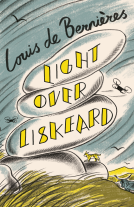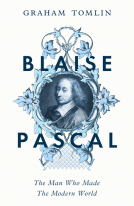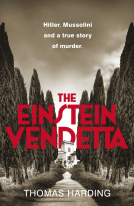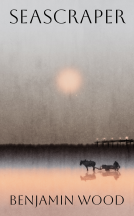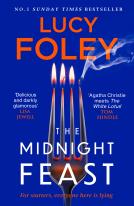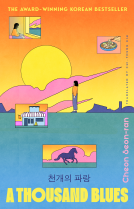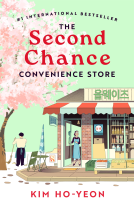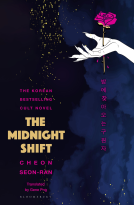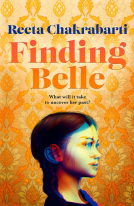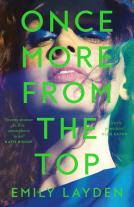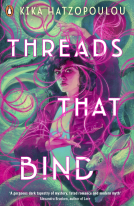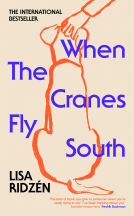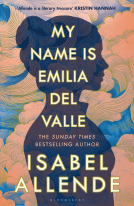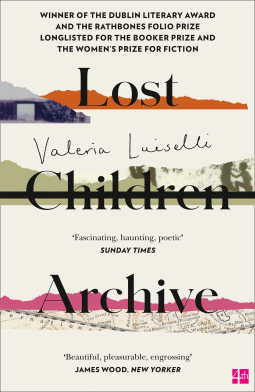
Lost Children Archive
by Valeria Luiselli
This title was previously available on NetGalley and is now archived.
Send NetGalley books directly to your Kindle or Kindle app
1
To read on a Kindle or Kindle app, please add kindle@netgalley.com as an approved email address to receive files in your Amazon account. Click here for step-by-step instructions.
2
Also find your Kindle email address within your Amazon account, and enter it here.
Pub Date 12 Feb 2019 | Archive Date 2 Apr 2020
HarperCollins UK, 4th Estate | Fourth Estate
Talking about this book? Use #LostChildrenArchive #NetGalley. More hashtag tips!
Description
The moving, powerful and urgent English-language debut from one of the brightest young stars in world literature.
LONG-LISTED FOR THE 2019 BOOKER PRIZE
LONG-LISTED FOR THE 2019 WOMEN'S PRIZE
‘Beautiful, pleasurable, engrossing, beguiling … brilliantly intricate and constantly surprising’ New Yorker
‘A mould-breaking new classic … The novel truly becomes novel again in her hands – electric, elastic, alluring, new’ New York Times
'Fascinating...an engrossing portrait of a family… Luiselli captures children’s outlooks with touching sympathy, set against a shifting backdrop of seedy motels in desolate hinterlands… an involving and richly textured book' Sunday Times
'Valeria Luiselli offers a searing indictment of America’s border policy in this roving and rather beautiful form-busting novel. Among the tale’s many ruminative ideas about absences, vanished histories and bearing witness, it offers a powerful meditation on how best to tell a story when the subject of it is missing' Daily Mail
'One of the best novels I’ve read in recent years'
Max Porter, author of Grief is the Thing with Feathers
Suppose you and Pa were gone, and we were lost. What would happen then?
A family in New York packs the car and sets out on a road trip. A mother, a father, a boy and a girl, they head south west, to the Apacheria, the regions of the US which used to be Mexico. They drive for hours through desert and mountains. They stop at diners when they’re hungry and sleep in motels when it gets dark. The little girl tells surreal knock knock jokes and makes them all laugh. The little boy educates them all and corrects them when they’re wrong. The mother and the father are barely speaking to each other.
Meanwhile, thousands of children are journeying north, travelling to the US border from Central America and Mexico. A grandmother or aunt has packed a backpack for them, putting in a bible, one toy, some clean underwear. They have been met by a coyote: a man who speaks to them roughly and frightens them. They cross a river on rubber tubing and walk for days, saving whatever food and water they can. Then they climb to the top of a train and travel precariously in the open container on top. Not all of them will make it to the border.
In a breath-taking feat of literary virtuosity, Lost Children Archive intertwines these two journeys to create a masterful novel full of echoes and reflections – a moving, powerful, urgent story about what it is to be human in an inhuman world.
Advance Praise
'A novelist of rare vitality'
Ali Smith
‘Valeria Luiselli’s first novel in English is one of the best novels I’ve read in recent years, and one of the most important. She floods extraordinary light onto childhood, parenthood, the literary consciousness, and how we make sense of past and present pain.
It is a gorgeous and vital ghost-rich soundscape, and one of the most brilliant portrayals of child-parent relationships I have ever read’
Max Porter, author of Grief is the Thing with Feathers
‘Impossibly smart, full of beauty, heart, and insight, Lost Children Archive is also highly readable and important. It is the perfect American road trip novel for right now. Everyone should read this book’
Tommy Orange, author of There, There
‘Valeria Luiselli writes with so much intelligence and compassion and originality. Lost Children Archive is absolutely phenomenal’
Claire-Louise Bennett, author of Pond
Available Editions
| EDITION | Ebook |
| ISBN | 9780008290030 |
| PRICE | £5.49 (GBP) |
| PAGES | 352 |
Featured Reviews
This is a self-consciously literary novel which plays meta games with intertexts from a range of literary sources, from the Odyssey to The Waste Land. At its heart is a meditation on travelling and belonging, on migration and being lost. With an angry heart Luiselli tells stories of migrant children making terrible journeys from South to North America, perishing en route or being deported back. But all this good stuff is wrapped up in a narrative of a family trip that dulls down the potency of this the message. With unnamed narrators and characters (' The boy', ' The girl') and a fragmented, disorganised narrative, it's hard to feel engaged in the family crisis and breakdown, however much of a spotlight it gives to the larger story beyond the family. In parts powerful, in others too unfocused, this is uneven and faltering:3.5 stars rounded up to 4 because there's real heart here and a positive anger.
 Cathy B, Educator
Cathy B, Educator
I am a bit conflicted about this one. On the one hand it is book that tackles an issue that is at the heart of a lot of social debate right now: immigration. The writer really manages to bring home some truths about the inhumanity of our approach to those who yearn for a better life, especially if those who are too young to comprehend the full scope of what is happening to them. Luiselli writes beautifully, but herein also lies the problem. Her writing sometimes becomes a little too convoluted, too crafted and the book looses "the story" and turns into a long self-introspective flow of the main character, with whom I found it very hard to sympathize. Maybe this is because all the characters feel like nameless puppets. Even though I can see why she chose to do so, it makes it more difficult for the reader to connect. I finished it but it took me a while, so read this when you have time because you need to have time to think about it to really enjoy it.
 Camille O, Librarian
Camille O, Librarian
This is a novel about a family on a cross-country road trip. But it is also about Native American history. And about the Mexican immigration experience.
What is unique and exceptional in Luiselli's text is the dialogue with different texts; "Lost Children Archive" echoes and alludes to a wide range of literary texts, from Ezra Pound and T. S. Eliot to Virginia Woolf and Juan Rulfo.
"[...]the constant tension in those pictures, a tension between document and fabrication, between capturing a unique fleeting instant and staging an instant. She wrote somewhere that photographs create their own memories, and supplant the past. In her pictures there isn't nostalgia for the fleeting moment, captured by chance with a camera. Rather there's a confession: this moment captured is not a moment stumbled upon and preserved but a moment stolen, plucked from the continuum of experience in order to be preserved."
 Lesley S, Reviewer
Lesley S, Reviewer
I was sent a copy of Lost Children Archive by Valeria Luiselli to read and review by NetGalley.
When I first started reading this book I wasn’t at all sure that I would like it or indeed finish it! The first section is from the viewpoint of what turned out to be ‘The Mother’ and to me read very much more like an essay than a novel. It seemed to me to feel quite distanced or detached as the other characters were illustrated with the names ‘My Husband’ ‘The Boy’ and ‘The Girl’. A good deal of the story is taken up with factual and anecdotal information regarding Geronimo and the last Apache Indians, along with stories of the Lost children of the title, which pertain to the migration of children from Central America and Mexico to the USA. The story picks up pace in the latter half of the book when we hear the voice of ‘The Boy’ who at 10 years old is narrating for his 5 year old sister his version of this epic road trip together. The Boy’s story interweaves what we have learnt of the trip from the adults with his own understanding of events and culminates with the children’s own adventure, which is quite intense. This is quite a complex novel which once finished stays with you and makes you think – which can only be a good thing.
 Reviewer 334954
Reviewer 334954
You were not even level A because you confused the letters b and d, and also the letters g and p, and when I showed you a book and asked you what do you see here on this page? you said, I don’t know, and when I said what do you at least imagine? you said that you pictured all the little letters jumping and splashing like all the kids in our neighborhood when they finally opened the swimming pool and let us swim there.
I read this online, in a Netgalley review copy for the phone and I think that might affect my review. The book circles ideas of archiving and recording, as a "blended" family makes a trip South to record for a documentary (her) and for one of those academic projects that is on the slightly bonkers end of the spectrum (him). Travelling with two small children, the first half is her narrating the journey alongside her increasing awareness that the relationship is over, and at their destination she will take her child and he will take his (always referred to as "The girl" and "The boy"). The journey is long, in parts dull, and sometimes scary (police asking for papers). Along the way Luiselli builds up a picture of the family, mum map reading, dad trying to interest the kids in stories of Native American histories as part of his work, and the (older) boy taking pictures with his new instant camera, whilst the five year old amusingly misunderstands much of what is going on.
The mother's research project is linked to the missing children travelling the rail lines from Mexico. The boy absorbs the story and makes a dramatic decision.
The book includes images, lists and many quotes: I suspect a beautiful print edition might have swayed me more towards a positive response. There are some lovely passages, sections that made me think, but I can't forgive it for a very long central section that made me want to give up!
A very powerful and impressive novel! I recommend reading Luiselli's essay 'Tell Me How It Ends' first, in order to get all the facts beforehand and to understand the political situation in the US better. Both books have largely the same subject matter: child migrants crossing the border from Mexico to the US, traveling dangerously on freight trains, risking their lives, hoping to reach a family member once they arrive in the US. It is als a book about how native Americans have mostly disappeared from American society, or rather: were removed. And it is about a marriage falling apart, about wanting other things, silence and not knowing how to reach each other anymore.
A couple and their children (aged 5 and 10) are making a road trip from New York to the Arizona-Mexican border. The father is following the trail of the Apaches and recording remnants of their lives; the mother is collecting material for an essay on child migrants. Whilst traveling they are telling stories, listen to music or the audiobook 'Lord of the Flies.' I liked the fact that the parents communicate with their children as if they are more or less grown up, which makes for interesting conversations and point of views. These children are curious, smart and very likable and I just love how great the brother and sister are together.
The book can be a bit intellectual at times with loads of literary references and different narrative techniques, which some people may find annoying, but I rather liked. It also has something to teach us, but in such a way that it never feels imposed. It's a book that made me angry, sad and occasionally had me close to tears. It will stay with me for quite some time...
Thank you very much for the ARC.
 Jim S, Reviewer
Jim S, Reviewer
This is a stunning story – absolutely appropriate for our times and with multiple layers of meaning. I believe that it is her first book in English (the previous ones were published in Spanish initially) and it is well worth seeking out. I’d be tempted to give it the Booker Prize as well!
At first sight, it isn’t an easy text. The structure of the book into four parts sub-sectioned into boxes (among other things), the intertextuality that pervades the story, the different observational standpoints and the constant references to something else you should have read all makes for a challenge. This isn’t a straightforward narrative!
The heart of the story is a road journey across America to the Mexican border undertaken by a nameless man and wife and their two nameless children. The husband wants to relocate in order to record Apache soundscapes but the relationship with his wife is all but broken and she intends to leave him there and start a new project back in New York. The wife and, later, the son document the journey.
The story of the journey is intermingled with another journey told in a series of ‘elegies’ about a group of Latin American children being slowly smuggled towards the United States border with some vague hope of finding relatives there, and the concerns of the liberal wife for a friend of a friend whose two daughters may have been ‘lost’ making this journey. The long car journey is interspersed with the father’s stories of the Apache Indians and Geronimo, and the repetitive playing of David Bowie’s ‘Space Oddity’ and an audio tape of ‘Lord of the Flies’. Ultimately, after travelling for many days in the ‘tin can’ of their Volvo the two children go off on their own, living the primitive life of the boys in the audiobook and they become lost as the two ‘lost children narratives’ coincide.
I love the children in the story who are so well drawn from the start that the almost symbolic climax is believable. Most readers would want to take them to a place of safety as far away from their deluded parents as soon as possible. The father records sounds, allegedly randomly but assuming that from multiple recordings some kind of reality will emerge. He is hopelessly wrong as he stumbles around with his microphone boom and headphones accidentally objectifying his surroundings by what he selects. He is somehow lost as well.
The wife is in a lost relationship selfishly pursuing her own liberal ideals, full of self-analysis and righteousness while accidentally neglecting the children. I didn’t like her either. Perhaps other readers will look more kindly on the parents but they seem to be embedded in, and are perhaps the products of, a culture where nastiness to children has constantly featured – the book provides the evidence.
The elegies about the other children are haunting and harrowing. The construction of the narrative means that you keep returning to them and sense the passing of time as they make this desperate journey with little sense of where they are and what is happening while being coerced along by men whose only interest is being paid for their delivery. This part of the story doesn’t end well. It is tragically where fiction collides with documentary and the contemporary world and it is hard not to be moved.

